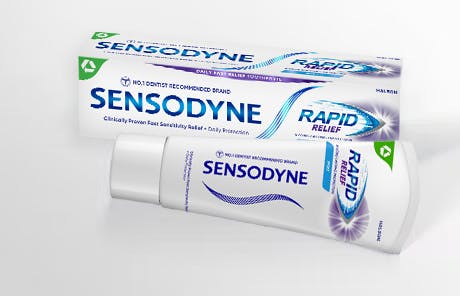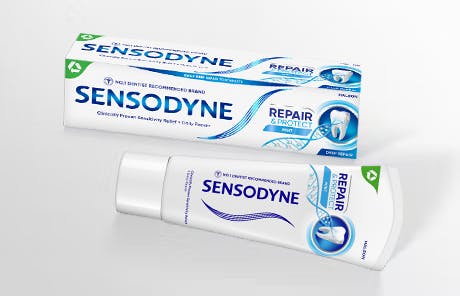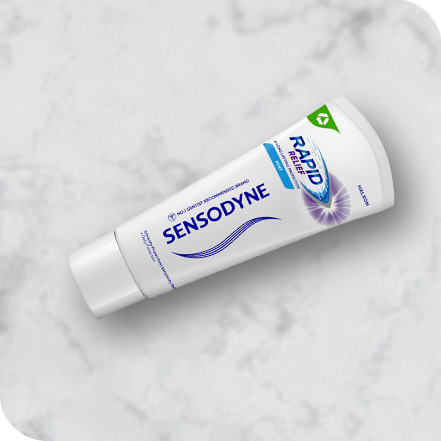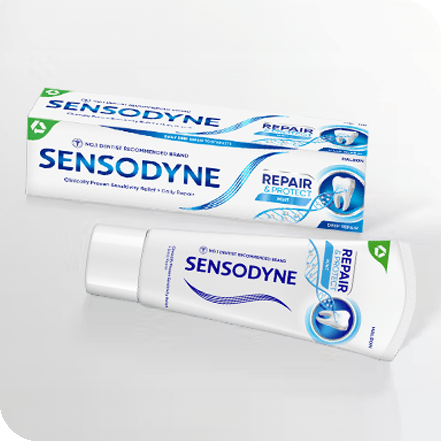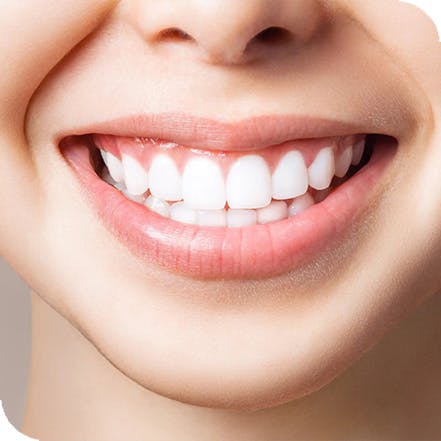Why Do My Teeth Hurt?
If a bite of ice cream or a sip of hot coffee triggers a sudden, short, sharp pain, it could be a sign that you have sensitive teeth.
Tooth sensitivity is common and can develop over time, typically because of gum recession or enamel wear.
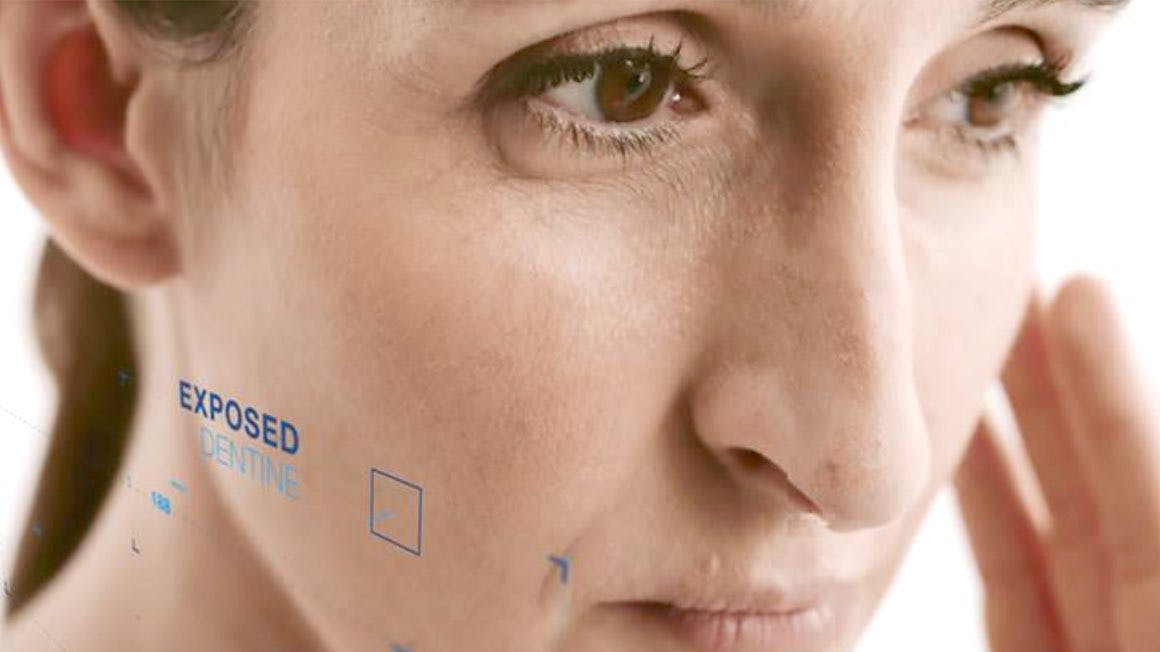
0:24


How do you care for sensitive teeth?
Maintaining good oral care habits makes it easy to manage sensitive teeth. Once you experience sensitive teeth, it can get worse, but brushing twice a day, every day, with Sensodyne is an easy way to help alleviate symptoms, providing 24/7 sensitivity protection.
Ways to Help Treat Sensitive Teeth
Start using Sensodyne
Get sensitivity relief and long-lasting* protection.
Brush 2x a day, every day
Use a soft-bristled toothbrush.
Visit your dentist
Schedule a checkup as often as your dentist recommends.
*With twice daily brushing

How Sensodyne Can Help
Sensodyne is specially formulated to provide daily care and protect against sensitive teeth and is the No.1 dentist recommended toothpaste brand for sensitive teeth.*
It works by creating a barrier over sensitive areas or by soothing the nerves inside your tooth, ultimately offering 24/7 protection for sensitive teeth when you brush with it twice a day, every day.
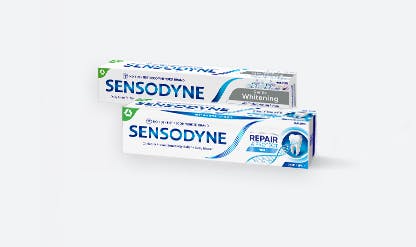
[1] Addy, M. (2002) 'Dentine hypersensitivity: new perspectives on an old problem', International Dental Journal, 52(S5P2), pp. 367-375.
[2] West, N. X., Sanz, M., Lussi, A., Bartlett, D., Bouchard, P. and Bourgeois, D. (2013) 'Prevalence of dentine hypersensitivity and study of associated factors: A European population-based cross-sectional study', Journal of Dentistry, 41(10), pp. 841-851..


